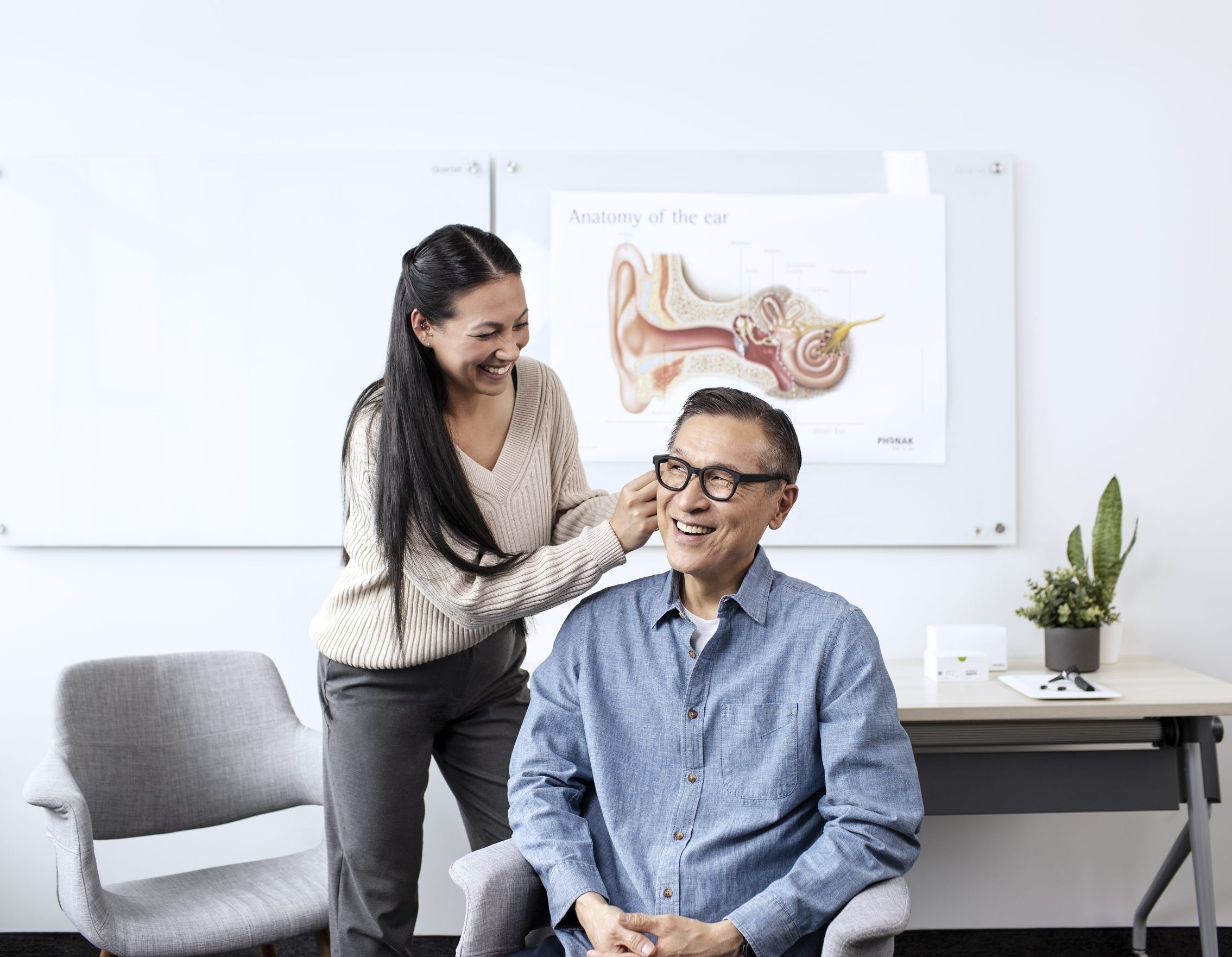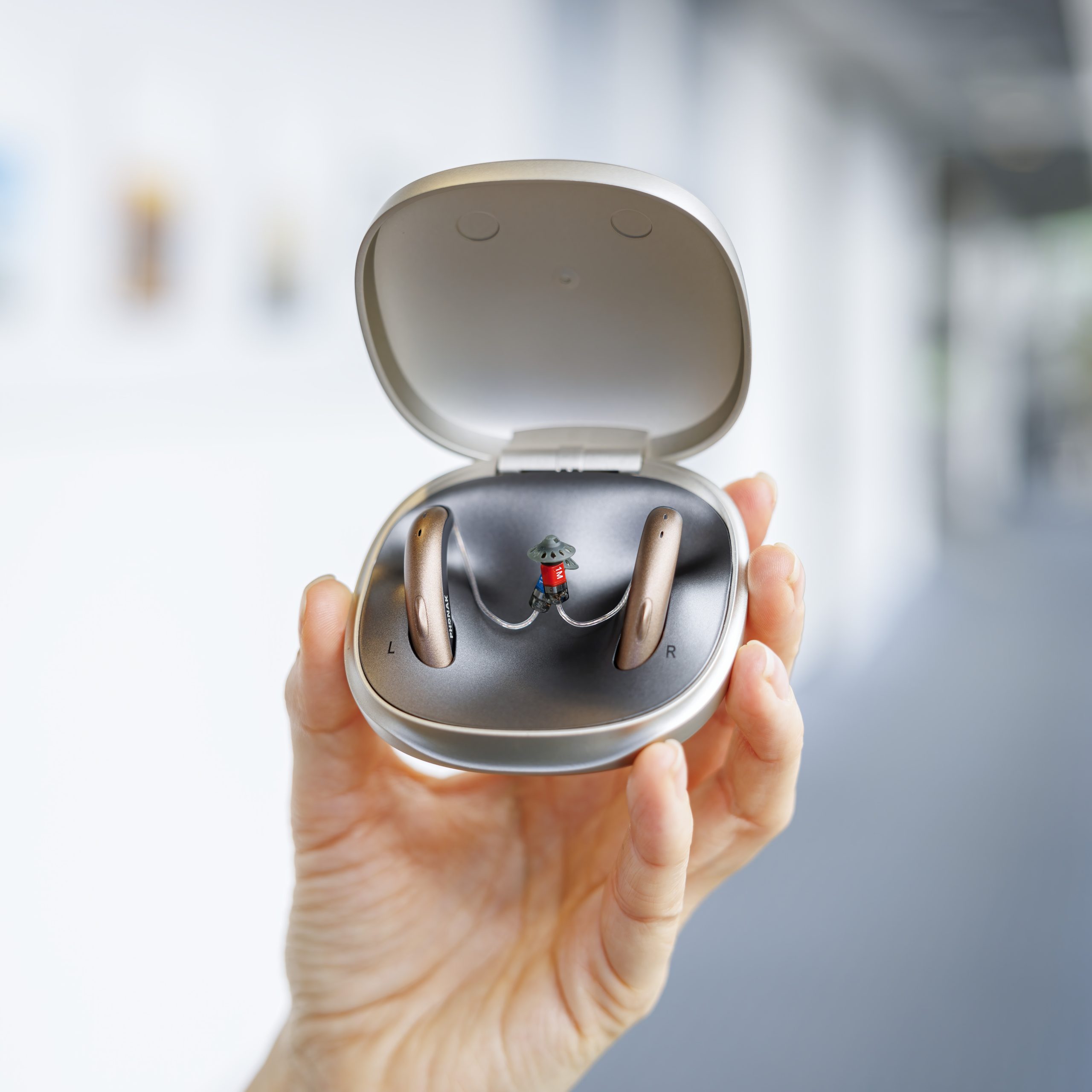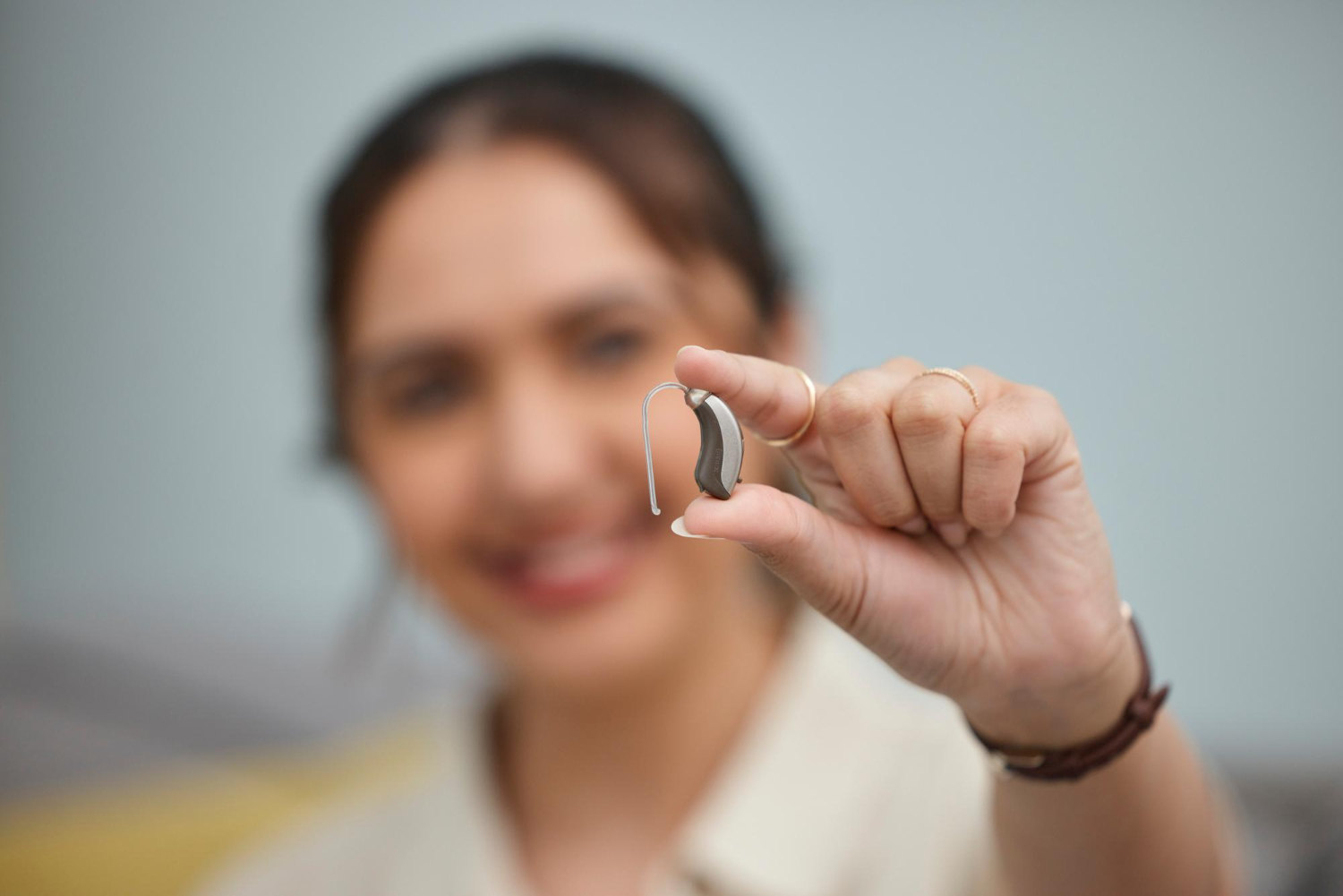Setting Realistic Expectations
It’s essential to start your hearing aid journey with realistic expectations. While hearing aids can be life-changing and greatly improve your ability to hear, they won’t restore your hearing to a 100% normal state. Hearing aids work by capturing sounds in your environment, processing them through algorithms to determine which sounds need amplification, and then delivering those sounds at the appropriate levels based on your hearing thresholds.
1. Hearing aids won’t completely restore your hearing, but they can significantly enhance your hearing experience if you’re committed to improving it.

Act Early for Better Outcomes
The timing of your decision to seek hearing amplification can significantly impact your results. Acting early, as soon as you detect signs of hearing loss, increases the likelihood of a positive outcome. Your sense of hearing follows the “use it or lose it” principle, and a lack of auditory stimulation can lead to a decline in hearing acuity. Delaying seeking hearing assistance after many years of hearing loss can make it more challenging for your brain to adapt to the new sounds. Therefore:
2. Don’t hesitate to seek hearing aids once hearing loss is detected. Early intervention can yield better results.

Choosing the Right Hearing Clinic in Toronto
Selecting a reputable hearing clinic is the next crucial step. There are four main types of hearing aid clinics:
- Independently owned clinics: These clinics typically have Audiologists and Hearing Instrument Specialists who are trained and experienced in conducting hearing tests and recommending hearing aids. Look for clinics with positive reviews, short wait times, and the option for walk-in visits.
- Manufacturer-owned ‘chain’ clinics: These clinics often dispense only the brand of hearing aids they produce. This limited selection may not fully meet your needs.
- Wholesale dispensers of hearing aids: Similar to manufacturer-owned clinics, they may have limited brand and model options and longer waiting times.
- Online hearing aid clinics: Some online clinics offer hearing aids at competitive prices, leveraging remote fine-tuning via smartphone apps. Online options may be suitable for high tech savvy patients who are comfortable using their own computer and internet required for online consults and programming.
3. When searching for a hearing clinic, conduct thorough research and consider independent clinics that prioritize service quality.

Comprehensive Hearing Test
Once you’ve chosen a reputable clinic, you’ll undergo a hearing test in a quiet, sound-treated room or booth. This comprehensive assessment should include:
- Pure tone audiometry: Evaluating your hearing sensitivity to various frequencies.
- Speech Audiometry: Assessing your ability to understand spoken words.
- Tympanometric assessment: Examining your middle ear function.
- Speech in Noise Testing: assessing your ability to understand speech in background noise.
Based on these test results, the clinician will determine the most suitable hearing aid type, such as In-The-Ear or Behind-The-Ear models, and consider the type of hearing loss, whether conductive or sensorineural, and any asymmetrical components.
4. A comprehensive hearing test should cover Puretone & Speech Audiometry along with a Tympanometric assessment and speech in noise testing.

Ruling Out Urgent Medical Issues
If your hearing loss has an underlying cause that is not congenital or age-related, it may require medical attention. In such cases, consult with your family physician, who may refer you to an Ear-Nose-Throat Specialist before considering hearing aids. Urgent medical reasons may include sudden hearing loss, hearing loss in one ear, or pain, bleeding and/or fever.
5. Seek medical evaluation for sudden hearing loss, hearing loss in one ear, or symptoms of infection before considering hearing aids.

Selecting the Right Hearing Aid
Once we have assessed the type and degree of your hearing loss, it’s time to choose the most suitable hearing aid model and style. Hearing aids are available in four technology levels: Essential, Standard, Advanced, and Premium.
Technology Levels: As you move up the technology levels, you can expect more natural sound quality and better performance in noisy environments. The key differences between these levels are the internal chip and algorithm used in the device.
Styles: Hearing aids come in three different styles: Behind-the-ear (BTE), Receiver-in-the-ear (RITE), and Inside-the-Ear (ITE).
Future-Proofing: It’s essential to consider both your immediate and future needs. Can the chosen hearing aids be adjusted if your hearing changes in the coming years? Discuss this with your hearing professional.
6. Your clinician will recommend the most suitable hearing aid based on your lifestyle, cosmetic preferences, and budget. Ask about the different brands available.

Exploring Hearing Aid Demos
If possible, you may have the opportunity to demo the hearing aids in the clinic. While this can provide some insights into their performance, keep in mind that a clinic demonstration may not entirely reflect how the hearing aids will function in your everyday life. Demo hearing aids also have limitations when it comes to fine-tuning.
Moreover, many modern hearing aid models offer direct streaming to your smartphone, which can be highly convenient if your smartphone is compatible. Ensure you inquire about this feature and its availability in the recommended model.
7. In certain cases, you may be able to demo the hearing aids in the clinic. Ask about this option.

Understanding Sale Terms
Once you’ve chosen a hearing aid model and agreed to the pricing, it’s essential to review the terms of sale. Inquire about the warranty period, loss and damage insurance, and the service plan. Clarify the return policy and any options for upgrading or downgrading your hearing aids should you wish to make a change. Take your time to read and understand all clauses in the purchase agreement, and don’t hesitate to ask for clarification if needed.
Some clinics may offer financing plans, such as 0% financing for qualifying individuals.
8. Ask about the terms of sale, including warranties, insurance, service plans, and financing options.

Getting Fitted with Your Hearing Aids
Some clinics can fit you with your hearing aids the same day while others require a week or two to order your hearing aids. When it’s time to be fitted with your hearing aids, here are some important considerations:
- If you’ve selected a behind-the-ear model, your hearing aids may come with custom tips or earpieces. If these are uncomfortable, they can often be replaced with domes.
- In-The-Ear hearing aids are usually molded to the shape of your ears, which may initially cause a blocked feeling (occlusion). This sensation typically subsides after a couple of weeks. Be attentive to any feedback or comfort issues and report them to your clinician.
- The clinician should perform a real-ear measurement to ensure that your hearing aids are meeting your needs. This may be done during your fitting appointment or at a follow-up visit.
- Pay attention to the sound quality and request any fine-tuning adjustments. If the sound is too sharp, the volume is too loud, or background noise is distracting, these can often be addressed through programming.
- As a new user, your clinician may initially set your hearing aids to a beginner’s volume and gradually increase it during follow-up visits. This gradual adjustment allows your brain to adapt comfortably to the new sounds you encounter.
9. Assess the comfort, fit, and performance of your new hearing aids. Request any necessary adjustments, and collaborate with your clinician to optimize your hearing experience.

Follow-Up Care
When you choose an independent clinic for your hearing care, you can expect regular follow-up appointments to ensure your hearing aids are performing optimally. We recommend the following schedule:
- A phone call check-up 2 days after the initial fitting.
- An in clinic follow-up at the 2-week mark.
- A check-in one month after your last follow-up.
- Subsequent appointments every six months for the duration of your service plan.
- Easy access to the clinic during business hours for any immediate concerns.
Prompt follow-ups are essential, and if it takes longer than three days to book an appointment, it should raise a concern.
10. Ensure that your clinic follows up with you regularly, providing timely support for your hearing aids.

Hearing Aid Maintenance
While hearing aids are durable devices, a few minutes of daily maintenance can significantly extend their lifespan. Here are some essential maintenance tips:
- Regularly change the filters, and if you have domes, replace them every 3 months.
- Invest in high-quality batteries to prevent internal corrosion and ensure longer battery life.
- Consider using a dehumidifier or dry-aid kit to further protect your hearing aids.
11. Maintain your hearing aids consistently to maximize their longevity and performance.

Annual Hearing Tests
Hearing loss can change over time, which is why annual hearing tests are crucial. These tests, followed by reprogramming of your hearing aids, help you get the most out of your devices. It’s an opportunity to fine-tune your hearing aids and adapt to any hearing fluctuations.
12. Visit your clinic annually for hearing tests and reprogramming to ensure your hearing aids are optimized.

Summing It Up
As an experienced hearing aid user, make the most of your service plan and stay in touch with your clinician or hearing clinic. Here’s a recap of our recommendations:
- Maintain realistic expectations about hearing aids, as they can significantly enhance your ability to hear and improve your quality of life.
- Seek advice promptly if you notice a decline in your hearing, as early intervention leads to better outcomes.
- Choose an independent hearing clinic with a strong reputation and a focus on service quality.
- Ensure your hearing test includes a pure-tone test, speech test, and tympanometric assessment.
- For certain types of hearing loss, consider seeking medical attention before pursuing hearing aids.
- Based on your specific needs and preferences, your clinician should recommend hearing aids from a wide range of top brands and models.
- Whenever possible, request a demo of your chosen hearing aids to assess sound quality and performance.
- Thoroughly understand the warranties, insurance coverage, and service plan associated with your purchase.
- During the fitting, prioritize comfort and request a real-ear measurement test for accurate adjustments.
- Expect regular follow-up appointments with your hearing clinic, especially in the critical first month of use.
- Maintain your hearing aids by cleaning them and changing filters as recommended.
- Schedule annual hearing tests to monitor any changes in your hearing,with corresponding adjustments to your hearing aids.
As an independent clinic, Owl hearing offers the flexibility to prescribe and dispense hearing aids from a wide range of reputable brands, tailored to your unique needs. Contact us today to speak with one of our audiologist and explore the latest top models available.

